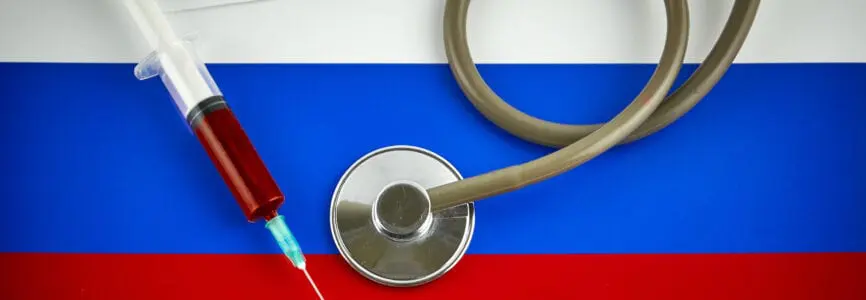Bioethics Forum Essay
Did Russia’s Most Influential Bioethicist Get a Coronavirus Vaccine?
Along with the announcement that his government had approved Sputnik V, the supposed Russian coronavirus vaccine, Vladimir Putin also indulged in a moment of paternal pride: Wanting to confirm his personal confidence in the vaccine, he mentioned that one of his daughters was among the early recipients. This raises a couple of intriguing questions: Which daughter was it? And why does it matter?
Putin is said to have two daughters. Yekatarina Tikhonova is an acrobatic dancer. Mariya Vorontsova is a pediatric endocrinologist. Of the two, only Vorontsova would have a professional interest in the goal of a safe and effective vaccine. Still more telling, Vorontsova has shown exceptional interest in the most compelling bioethical issue of the years before the pandemic: gene editing.
In 2019, Bloomberg News reported that Vorontsova had participated in a meeting of geneticists and government officials. The urgent confab was triggered by the public statements of Denis Rebrikov, a scientist at the Kulakov National Research Center for Obstetrics, Gynecology, and Perinatology. Rebrikov said that he wanted to follow up on the work of He Jiankui, the Chinese scientist who was later imprisoned for using Crispr-cas9 on three embryos in an effort to render the future babies immune to HIV. Rebrikov at first embraced that goal, but then decided he would instead modify the genes of hearing-impaired parents so that their children would not inherit that trait. Reportedly, the upshot of the Moscow meeting was that the Russian scientific establishment discouraged such ventures, at least for the time being.
A fascination with the implications of genetic modification seems to be shared by father and daughter. In 2017, Putin told a group of young Russians that the power to edit human genes could be “worse than an atomic bomb.” At other times, Putin has speculated about the implications of emerging and dubious technologies. In 2012, he suggested that Russia had developed a “psychotronic weapon” that used pulsed microwaves to disrupt brains at a distance. In this case, the ethics seems to have been rather secondary in his thinking, let alone the plausibility.
No word on what position Vorontsova took at the 2019 meeting on gene editing. Presumably, Chatham House rules applied. But it’s a sure bet she chatted with her dad about the matter. When it came time to boost confidence in the Russian vaccine, Vorontsova might well have given the consent form her attention. Unfortunately, there’s no evidence that there was a form, nor has data on any previous clinical trial been published.
Still, considering her medical training, Vorontsova would be one among a long tradition of scientists who self-experimented, and she certainly has unique access to her father’s thinking. He was impressed enough with her willingness to be vaccinated that he made a point of mentioning it at the press conference.
Now that’s vliyaniye (influence), in any language.
Jonathan D. Moreno is the David and Lyn Silfen University Professor of Ethics at the University of Pennsylvania and a Hastings Center fellow. Twitter: @pennprof
45% of The Hastings Center’s work is supported by individual donors like you. Support our work.














In the ethical analysis of Putin’s daughter being one of the first to obtain a supposed COVID vaccine, there was a missed perspective. If Putin’s daughter was amongst the first to receive the vaccine, how was she chosen? Suppose she was chosen because she was the daughter of Putin. In that case, this causes an ethical challenge on the fair allocation of resources, transparency of the process, and procedural justice that ought to be afforded to such novel treatments/interventions.
There’s no Transparency about how russian researchers run their clinical trials. Has been there an independent review board?